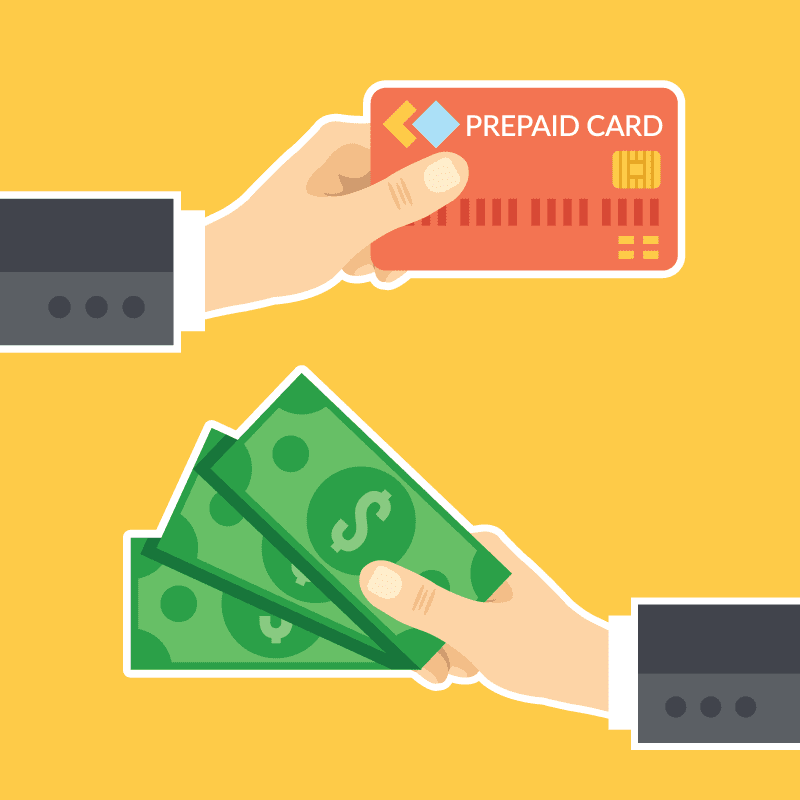New Rules for Prepaid Cards: CFPB Calls For Transparency
The soaring popularity of prepaid cards will be put to the test over the next year as providers adjust to new regulations handed down by the Consumer Financial Protection Bureau (CFPB).
The CFPB handed prepaid card companies a laundry list of rules designed to protect consumers and told the companies they have until October of 2017 to comply.
The major suppliers of prepaid cards are Visa, MasterCard, American Express, and Discover. According to the Nilson Report, American consumers spent $185 billion on prepaid cards in 2015, almost three times more money than was spent in 2010.
Phoenix Synergistics, which tracks the number of households that purchase prepaid cards, said that 69.8 million households used them in 2015, a 50% jump over the 46.7 million households using them in 2010.
Complaints Regarding Fees Rising
While the sale of prepaid cards has been sizzling, so have the complaints about the fees and restrictions that accompany them. The CFPB received more than one million complaints before issuing the new set of rules that require companies to offer the following:
- Printed forms with easy-to-understand explanations of all fees
- Protection for lost cards or unauthorized use of the card
- Cooperation with consumers disputing account errors
- Free access to account information by phone, online or in writing — when requested
There is even a provision that says any company offering credit to prepaid card users when their account hits zero must first assess the consumer’s ability to pay off debt.
“This rule closes loopholes and protects prepaid consumers when they swipe their card, shop online, or scan their smartphone,” CFPB Director Richard Cordray said in a statement. “It backs up those protections with important new disclosures to let consumers know before they owe.”
Prepaid Card Industry Upset with New Rules
The Network Branded Prepaid Card Association (NBPCA), a trade group that represents the prepaid card industry, disagreed with just about everything Cordray said. The NBPCA has been battling the CFPB over the rules since their proposal in 2014, all but suggesting that the new regulations would cause the industry to implode.
The NBPCA claims:
- The CFPB is using a broad definition of what a prepaid card is
- The rules will confuse customers
- The rules will eliminate some of the features of prepaid cards or at least increase the cost to consumers
- NBPCA members can’t implement all these changes in a year’s time
“It is already clear that the CFPB has dismissed many of our serious concerns and moved forward with a rule that will harm the very consumers it aims to protect,” Brad Fauss, president and CEO of the NBPCA said in a statement. “Instead of fostering financial innovation and inclusion, the CFPB’s rule will ultimately limit access to an essential mainstream consumer product that helps millions of Americans participate in the digital economy, affordably manage funds and safely hold money.”
What Are Prepaid Cards?
Prepaid cards are an alternative source of banking for many American consumers. They look and work much like credit or debit cards, but there is a significant difference between them: money must be loaded onto a prepaid card in advance of using it.
That’s not the case with credit and debit cards.
With prepaid cards, the consumer electronically loads an amount to activate the card. The amount gets deducted as consumers use it and when it hits zero, the owner must load more money on it, or the card is useless.
Credit cards allow consumers to spend up to a credit limit, with the promise they will pay for the balance at the end of the billing cycle. Debit cards are tied to bank checking accounts and are subject to overdraft fees if the consumer doesn’t watch his/her balance carefully.
Prepaid cards are extremely popular with the 67 million Americans who are either unbanked (16 million) or underbanked (51 million). Many use them to replace traditional checking accounts as a means of keeping track of spending. They make deposits into their general purpose prepaid accounts, either directly from employers or from the government, then use the cards to pay bills, purchase gas or groceries, withdraw cash from ATMs or transfer money to family or friends. When their account nears zero, they can electronically reload money onto the card and resume using it.
Prepaid cards are not useful in building a credit score because the three major credit bureaus do not track spending on prepaid cards. Besides, there is no credit used. The cards value reflects how much money the consumer loaded onto it, so he or she is spending their own money, not borrowing.
Highlights of New Prepaid Card Rules
The CFPB received 1,008,500 complaints about prepaid cards, most of them dealing with exorbitant and often hidden fees that accompany nearly every transaction and unauthorized transactions. Prepaid card users had limited protection from the federal government until the CFPB stepped in with the sweeping set of rules.
The new rules cover a lot of ground, but here are some of the changes worth noting:
- The sale of prepaid cards must include a long and short form explanation of card expenses in easy-to-understand language. The forms will detail charges for periodic fees, per purchase fee, ATM withdrawal fee, account inquiry fee, cash reload fee, customer service and inactivity fee.
- Consumers should have free and easy access to account information. Most prepaid cards do not have monthly billing statements, like those provided to bank customers with a checking account. If the company doesn’t provide periodic billing statements that detail the deposits and withdrawals from a consumer’s account, it must make that information readily accessible via phone, online or in writing, upon request.
- If the owner of a prepaid card reports it missing or stolen within 48 hours, their liability for unauthorized use of the card is limited to $50.
- Card companies must investigate and resolve complaints of unauthorized card use promptly and, when appropriate, restore missing funds.
- Card companies may not open a credit line related to a prepaid card, or increase one already opened, without first considering the consumer’s ability to make required payments. Card companies must wait 30 days after a consumer registers the prepaid account before offering the credit feature.
- If a prepaid card company does give a consumer a line of credit, the company must issue monthly statements and allow consumers 21 days to repay the debt before assessing a late fee.

5 MINUTE READ
Home » InCharge Blog »
Sources:
- NA, (2016, October 25)CFPB Monthly Complaint Snapshot Spotlights Prepaid Product Complaints. Retrieved from http://www.consumerfinance.gov/about-us/newsroom/cfpb-monthly-complaint-snapshot-spotlights-prepaid-product-complaints/
- NA, (2016, October 50 CFPB Finalizes Strong Federal Protections for Prepaid Account Consumers. Retrieved from http://www.consumerfinance.gov/about-us/newsroom/cfpb-finalizes-strong-federal-protections-prepaid-account-consumers/
- Marte, J. (2016, October 5) Prepaid card users are finally getting some of the same protections as credit card users. Retrieved from https://www.washingtonpost.com/news/get-there/wp/2016/10/05/new-rules-could-make-prepaid-cards-more-similar-to-credit-cards/
- Cowley, S. (2016, October 5) Prepaid Debit Cards Users Will Get New Federal Protections. Retrieved from http://www.nytimes.com/2016/10/05/business/prepaid-debit-cards-users-will-get-new-federal-protections.html

















